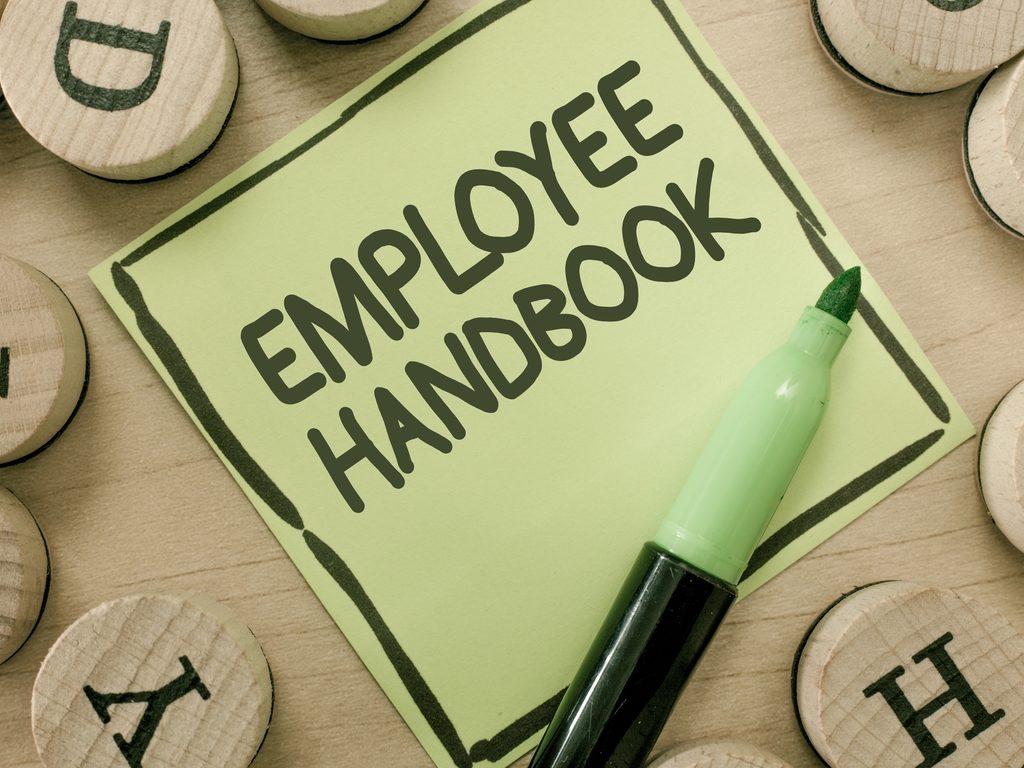Oct 30 2018
It is a common practice for employers to give handbooks to their new employees when they start work. But, as an employee, how often do you actually look at the employee handbook? The short answer: probably not enough. Your employee handbook can be a vital resource, particularly if you experience issues in your workplace.
The Employment Handbook May Be Considered an Enforceable Contract
One of the main reasons why it is important to know the details of your employment handbook is because it can actually be considered an enforceable contract under certain circumstances. In other words, the handbook sometimes promises to give the employee some sort of benefit(s) for which the employee works with the understanding that s/he will receive the benefit of that promise. If this applies to you, your handbook may be an “implied contract.”
This concept is especially important if you have been terminated. Connecticut, like almost all states, allows private employers to terminate employees “at will,” i.e. without a reason. But even if you don’t have a written contract or the employment contract does not restrict termination, the employee handbook may have language that restricts your termination. For example, the handbook might prevent an employer from terminating an employee without providing “just cause.” This means that your employer cannot terminate you unless it gives a legitimate reason. Or, the handbook might explicitly lay out certain steps the employer must take before it can terminate the employee. It is therefore important to be aware of these possible restrictions.
Second, the employment handbook may outline very specific procedures for disciplining an employee. If the employer disciplines the employee in a manner that conflicts with the precise procedure, you may have a breach of contract action against your employer.
The Employment Handbook Likely Identifies Some of Your Employee Protections Under Federal, State, and Local Law
Another important reason why an employment handbook may be useful is because Connecticut law requires an employer to make available in writing or posted notice its employment practices (and changes) on “wages, vacation pay, sick leave, health and welfare benefits, and comparable matters.” Conn. Gen. Stat. 31-71f. Employment handbooks therefore may contain much of this information. For example, an employee who needs to take leave under the Family Medical Leave Act may find the employer’s procedure in the handbook or manual. The FMLA requires the employer to follow certain minimal requirements designed to give access to employees, but it also allows employers to issue their own wide range of policies so long as they do not conflict with the FMLA’s rules. By familiarizing yourself with the employer’s particular procedures, you can access the wide range of protections and benefits offered by the federal and state governments.
In addition, the employer handbook may outline the various federal and state protections preventing employees from discrimination in the workplace. While it is fairly common knowledge that the federal government protects employees from discrimination and retaliation on the basis of sex, race, color, national origin, and religion; state laws, local laws, and other federal laws give the employee even more protections. For example, Connecticut also protects individuals from discrimination on the basis of age, gender identity or expression, marital status, ancestry, present or past history of mental disability, intellectual disability, learning disability or physical disability, including, but not limited to, blindness. Federal and state statutes also protect employees from retaliation for whistleblowers, employees who exercise their free speech, or for those who file a worker’s compensation claim. Awareness of these federal, state, and local protections can be made possible in the employment handbook.
The Employment Handbook May Actually Have Bad Policies
The National Labor Relations Board (“NLRB”) is a federal agency that protects the rights of most private-sector employees (both unionized and not) to improve wages and working conditions. Recently, the NLRB issued a memorandum outlining which workplace rules may be improper. The general gist is that an employer should not create procedures preventing employees from enjoying their full protections under federal, state, and local laws.
The following rules, often found in an employment handbook, are generally appropriate:
- Civility rules prohibiting rude or inappropriate behavior;
- Rules preventing an employee from disparaging (saying bad things about) other employees;
- Rules prohibiting photography or recording devices from use in the workplace;
- Rules against insubordination, unlawful or improper conduct, uncooperative behavior, refusal to comply with orders, or on-the-job conduct that impedes the employer’s operation;
- Confidentiality rules or other rules protecting proprietary or customer information;
- Prohibitions on defamation or misrepresentation;
- Rules against using the employer logo or intellectual property;
- Rules preventing an employee from speaking for the company without authorization; and
- Rules against disloyalty, nepotism, or self-enrichment.
However, some rules may interfere with an employee’s rights under the NLRB. You may want to contact human resources or legal counsel if you believe your rights are restricted:
- Broad conflict-of-interest rules;
- Overly broad confidentiality rules (e.g. confidentiality rules on “employer business” or “employer information”);
- Rules prohibiting disparagement or criticism of the employer;
- Regulations restricting use of the employer’s name;
- Rules preventing an employee from contacting the media or third parties;
- Rules banning certain types of off-duty conduct; and
- Rules prohibiting an employee from making false or inaccurate statements.
There are other rules the NLRB considers generally unlawful, and if you see these in your employment handbook you should seek legal counsel for advice:
- Confidentiality rules restricting disclosure or discussion of wages, benefits, or working conditions; and
- Rules regulating an employee’s membership in outside organizations, such as a union.
Contact Us
Do you have questions about your company’s employee handbook? Garrison, Levin-Epstein, Fitzgerald & Pirrotti, P.C. are ready to meet with you. Contact us to discuss the circumstances of your employment that you believe are at issue.
Posted by Garrison, Levin-Epstein, Fitzgerald & Pirrotti, P.C. in Commentary
Tagged Elisabeth Lee









